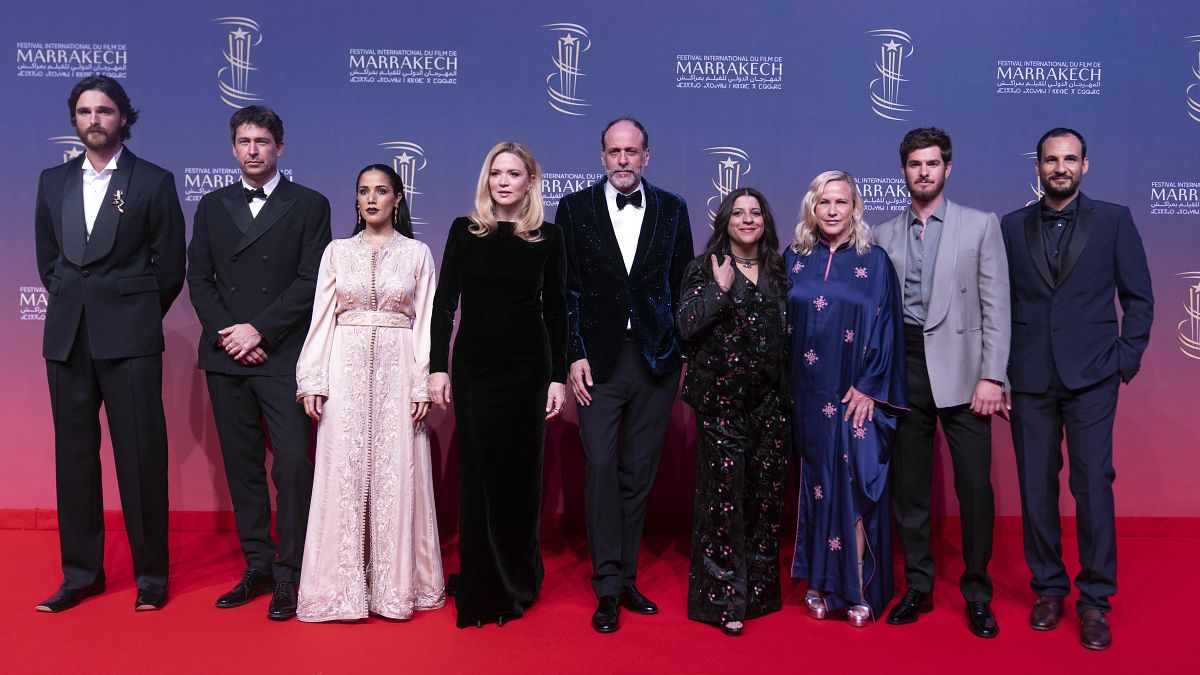Euronews Culture reports from the Marrakech Film Festival in Morocco, one of the largest in the Middle East and North Africa. As it celebrates its 21st edition, the week-long event is increasingly making its presence felt, well beyond its borders.
The Marrakech International Film Festival has always attracted actors and filmmakers from around the world but, now in its 21st year, the Moroccan celebration of cinema is entering a new era of maturity.
Seventy features from 32 countries are being showcased for movie lovers to devour. A number of major Oscar contenders will be screened but unlike other larger events of its kind like Venice, Cannes or Toronto, Marrakech gives undeniably more prominence to emerging talent from the Middle East and Africa, both burgeoning markets.
Luca Guadagnino, the Italian-Algerian director of Queer is presiding over the panel which will give out the Gold Star for best film and other prestigious awards such as best director and best male and female performance.
The competition contains 14 first or second films. The nine-person jury includes actors Virginie Efira, Patricia Arquette, Jacob Elordi, Andrew Garfield as well as Ali Abbasi, the Iranian-Danish director of The Apprentice.
The films in competition include Saïd Hamich’s Across the Sea about a young Moroccan man’s immigration to Marseille and Damian Kocur’s Under the Volcano, Poland’s Oscar entry for Best International Feature.
Critical Conversations
The roster of actors and directors who will participate in this year’s conversations and tributes includes Sean Penn, Alfonso Cuarón and David Cronenberg.
Remi Bonhomme, the festival’s artistic director, believes what makes Marrakech unique is its ability to draw talent on par with the world’s largest festivals while also spotlighting up-and-coming directors from Morocco, the Middle East and Africa.
“We pay a lot of attention to countries that are underrepresented in cinema,” he said. “We support filmmakers who have their own voice, who develop a story that is in a specific context, whether it is Iran, Morocco or the U.S.”
“But they don’t have to be the voice of their country. They have the need to have the freedom to express their own personal vision,” he added.
Among the themes that Bonhomme is excited about in this year’s films is family. Filmmakers, including The Seed of the Sacred Fig director Mohammad Rasoulof, are “exploring social and political impact through the scale of a family,” Bonhomme said.
The festival opened on Friday night with The Order , a gripping crime thriller starring Jude Law that chronicles an FBI manhunt for the leader of a white supremacist group.
The festival — founded by Morocco’s King Mohammed VI and is presided over by his brother Prince Moulay Rachid — plays a major role in showcasing and promoting Moroccan films and directors.
It has rarely shied away from diverse subject matter and this year will screen Moroccan films about immigration, homosexuality, bar performers and Moroccan communist Jews.
Video editor • Joseph Allen

